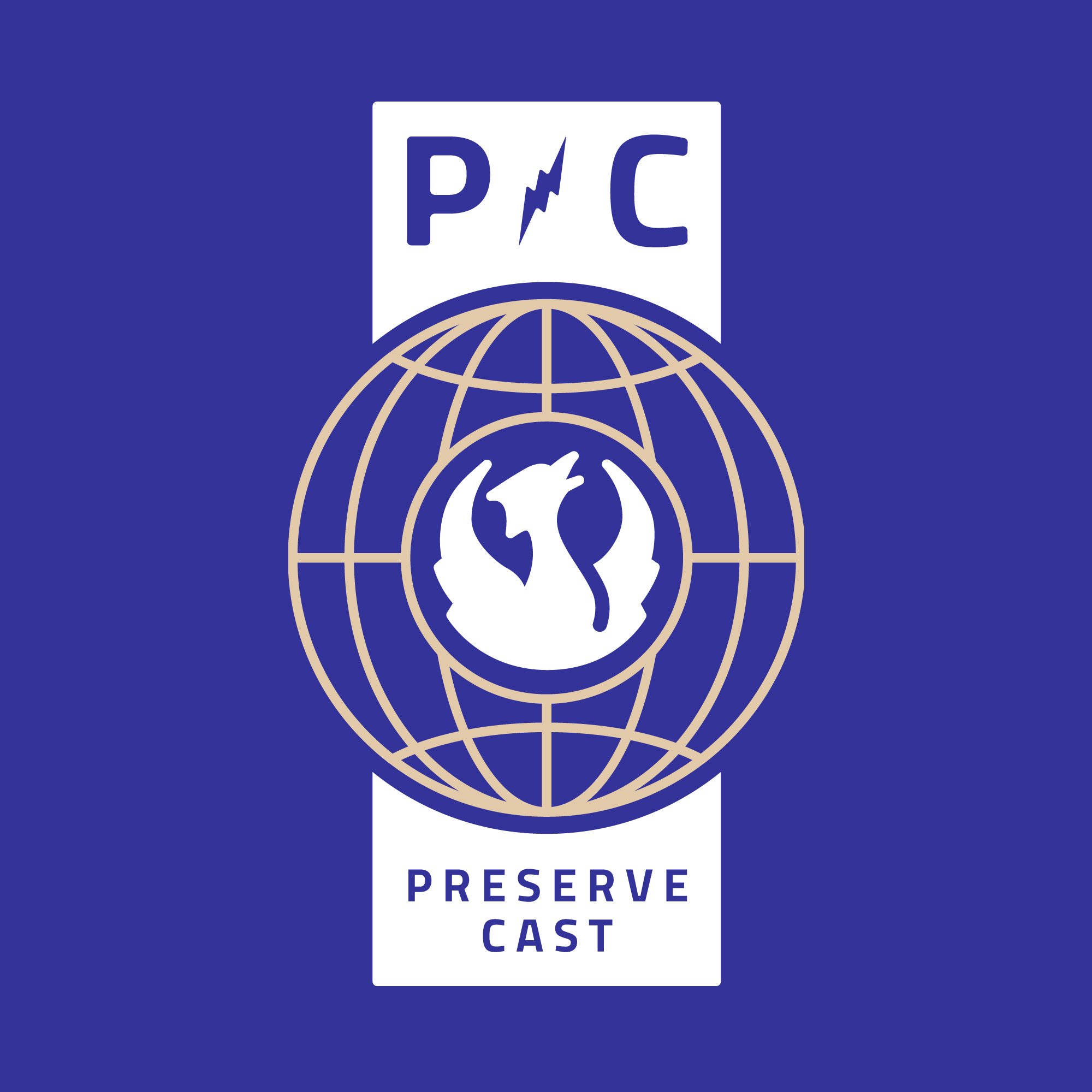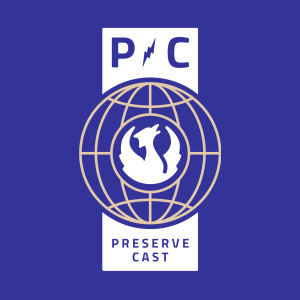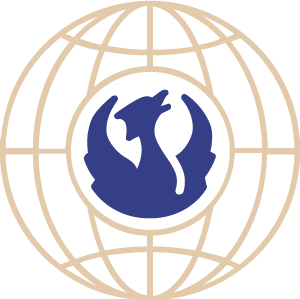
142.5K
Downloads
375
Episodes
PreserveCast is where the past and present meet to discuss how history impacts today – and tomorrow. Hosted by Nicholas Redding of Preservation Maryland.
PreserveCast is where the past and present meet to discuss how history impacts today – and tomorrow. Hosted by Nicholas Redding of Preservation Maryland.
Episodes

Monday Apr 27, 2020
Monday Apr 27, 2020
Walt Whitman once wrote that, “Future years will never know the seething hell and the black infernal background of countless minor scenes and interiors . . . of the Secession war; and it is best they should not—the real war will never get in the books.”
Although the painful, real stories of the Civil War and its grisly impacts may not have been accurately captured by authors – today’s guest, Jake Wynn, the Director of Interpretation at the National Museum of Civil War Medicine, is dedicated to telling those stories – and highlighting the grave sacrifices and incredible compassion displayed during that era.
As we confront a medical crisis in our own time, we sat down with Jake to learn about epidemics, disease, and health during the Civil War – and what lessons there might be for our own time.
ABOUT TODAY'S GUEST
Jake Wynn is the Director of Interpretation at the National Museum of Civil War Medicine and the Clara Barton Missing Soldiers Office Museum. He is a 2015 graduate of Hood College in Frederick, MD. He writes independently about Pennsylvania history at Wynning History and the Pennsylvania in the Civil War blog.
![PreserveCast Ep118 [Healthy, Hip & Historic] "Preserving History, Promoting Health" by Dr. Debarati Majumdar "Mimi" Narayan](https://pbcdn1.podbean.com/imglogo/image-logo/1486907/new-main-preservecast-podcast-graphic-simple_300x300.jpg)
Wednesday Mar 25, 2020
Wednesday Mar 25, 2020
In this third episode of PreserveCast's special series during the international coronavirus pandemic, we will hear from Dr. Debarati Majumdar "Mimi" Narayan of the Health Impact Project about the impact of historic preservation on the health of our communities and ourselves. As preservation addresses the physical material of our built environment – and those materials’ potential positive or negative health impacts – so too, does preservation address an emotional connection to a time and place in history.
Dr. Narayan's unique research specialty will help us place our preservation work in a broader context, identify challenges, and illuminate solutions for linking historic preservation and healthy communities.
Dr. Mimi Narayan is a Principal Associate at the Health Impact Project, a collaboration of the Robert Wood Johnson Foundation and The Pew Charitable Trusts. The goal of the national Health Impact Project is to reduce health inequities and improve the health of all people by ensuring that health is a valued consideration in public policy. Dr. Narayan is directing the Project’s strategic initiative that assesses the relationship of climate change and health, and specifically tribal health. The relevant nature of her work and its potential impact on communities has attracted national and international interest and recognition.
![PreserveCast Ep. 117 [Healthy, Hip & Historic] People, Old Places & Health with Dr. Jeremy C. Wells of the University of Maryland](https://pbcdn1.podbean.com/imglogo/image-logo/1486907/new-main-preservecast-podcast-graphic-simple_300x300.jpg)
Tuesday Mar 24, 2020
Tuesday Mar 24, 2020
As COVID-19 has changed the everyday ways that we interact with each other and our communities, it’s clear that our environment has important physical and psychological effects on us all.
This podcast is part 2 of a five-part special series presented by PreserveCast and powered by Preservation Maryland and includes the audio recording of Dr. Jeremy C. Wells' presentation of this subject at a Preservation Maryland conference in 2016.
Dr. Jeremy C. Wells is an Assistant Professor at the University of Maryland's School of Architecture, Planning, and Preservation, with a research focus on the ways that people interact with their environment and the ways historic places – their decay and patina – influence their psychological and social health.
Dr. Wells’ research utilizes applied social science methods and presents new approaches for heritage rules, laws, and regulations. In this context of health and behavior, there is additional importance placed on the work of community planning, historic preservation, and evaluating what it is to live a healthy life in a healthy place.
![PreserveCast Ep116: [Healthy, Hip & Historic] What the Future Holds for Historic Preservation and Community Revitalization with Storm Cunningham](https://pbcdn1.podbean.com/imglogo/image-logo/1486907/new-main-preservecast-podcast-graphic-simple_300x300.jpg)
Monday Mar 23, 2020
Monday Mar 23, 2020
As this current international pandemic has changed the everyday ways that we interact with each other and our communities, it’s clear that our environment has important physical and psychological effects on us all. Preservation addresses the physical material of our built environment – and those materials’ potential positive or negative health impacts – so too, does preservation address an emotional connection to a time and place in history.
This five-part special podcast series, Healthy, Hip & Historic on PreserveCast will feature five preservation visionaries that will place our preservation work in a broader context, identify challenges, and illuminate solutions for linking historic preservation and healthy communities.
Preservation Maryland brought Storm Cunningham, an author whose work is leading the way for partnerships between preservationists and environmentalists, to our annual statewide conference held in 2016 in Frederick, Maryland. Storm Cunningham is the publisher of Revitalization News online, and the author of "The Restoration Economy," "reWealth," and the forthcoming "Planetary Renewal: A Strategy To Reverse Our Decline."
As a regional partnership planner, he has facilitated comprehensive revitalization processes, not just a vision, project or plan which help places enhance their economy, boost the quality of life and increase climate resilience by repurposing, renewing and reconnecting their natural built and socioeconomic assets.
Storm joined our group of preservationists, planners and heritage tourism and museum professionals to show the group how they can think differently about who they partner with and what benefit comes from those partnerships. If we want to make the world a better and more sustainable place, we need to breakdown the silos each discipline has wedge themselves.
One example Storm will share was a potential relationship between “water people” and “solar people.” Instead of saying “we have nothing in common,” think about your goals and how they overlap. “Solar People” want solar panels to make clean energy and “water people” want to get safe and clean water long distances. Water evaporates unless it is covered, so why not cover the water channels with solar panels? This is a win-win. More energy and less water loss.

Monday Mar 09, 2020
Monday Mar 09, 2020
PreserveCast Log. Star date 97757.16.
Today we’re speaking with Michelle Hanlon, Co-Founder and President of For All Moonkind, Inc., a non-profit focused on protecting human cultural heritage in outer space. We’ll push the limits of the National Register and boldly go where no preservationist has gone before.
We’ve got 20 minutes, so let’s put this podcast on Warp 8 and proceed on this week’s PreserveCast.
Michelle Hanlon is Co-Director of the Air and Space Law Program at the University of Mississippi School of Law and its Center for Air and Space Law. She is also a Co-Founder and President of For All Moonkind, Inc., a nonprofit corporation that is the only organization in the world focused on protecting human cultural heritage in outer space. For All Moonkind has been recognized by the United Nations as a Permanent Observer to the United Nations Committee on the Peaceful Uses of Outer Space. Michelle Chairs the International Committee of the National Space Society. She received her B.A. in Political Science from Yale College and her J.D. from the Georgetown University Law Center. Michelle earned her LLM in Air and Space Law from McGill University where the focus of her research was commercial space and the intersection of commerce and public law.

Monday Nov 04, 2019
Monday Nov 04, 2019
Few names are as synonymous with the Civil War as Gettysburg. For many Americans, Gettysburg is the Civil War – a touchstone of American history that has captured the imagination and interest of the nation since the battle was fought over 150 years ago. Today’s guest, Barbara Sanders, has worked for the National Park Service at the iconic battlefield for nearly twenty years where she’s helped thousands of young visitors learn about the meaning, value, and importance of this now peaceful field. On this week’s PreserveCast we’re taking a trip back to 1863 to talk about youth education and Civil War history.
Barbara Sanders has been Gettysburg National Military Park's Education Specialist since 1999, where she oversees thousands of students visiting the park each year – whether in-person or on virtual field trips. In addition, the park annually offers professional development opportunities for teachers, classroom loan materials and more. Barbara was the educator on the project team for the planning and construction of the visitor center and museum, which included the concept and design for exhibits, films, and computer interactive elements. Barbara began her career within the museums of Philadelphia, and she then moved to Washington, D.C. to earn a Master of Arts in Teaching degree from The George Washington University’s Museum Education program. She was recently awarded the National Park Service Northeast Region’s Freeman Tilden award which recognizes creativity, advancement, and ingenuity in the field.

Monday Jul 01, 2019
Monday Jul 01, 2019
Saving the historic fabric of America's national parks is a massive job, and it requires a wide range of skills. Teaching those skills, and passing down the historic trades within the National Park Service is the responsibility of the National Historic Preservation Training Center. Established in 1977, and headquartered in Frederick, Maryland, the center is the Parks Service's premier preservation training center.
Today's guest, Moss Rudely, is the superintendent of the center and a historic mason by training. And in 2018, Preservation Maryland signed an agreement with the center to launch a new initiative, The Campaign for Historic Trades, which is designed to expand the Center's apprenticeship program. So grab your safety goggles and hammer because, on this week's PreserveCast, we're talking about the role of this unique Center and their efforts to train America's next generation of historic tradespeople.
Moss Rudley is a native of Greenbrier County, West Virginia, where he was raised on a working cattle farm filled with historic vernacular structures. He was first exposed to the trades and the field of historic preservation through the care of hand-hewn log structures of the Scots-Irish and German. A graduate of Shepherd University in Shepherdstown, West Virginia, he has been with the National Park Service’s Historic Preservation Training Center since 2000. A historic mason by training, after over 17 years with the Center he was promoted to Superintendent in 2017.

Monday Jun 03, 2019
Monday Jun 03, 2019
Few names over the past twenty plus years have been as synonymous with the National Trust for Historic Preservation as David J. Brown. David served as the Chief Preservation Officer for the Trust and has worked with several CEOs to implement a complex, difficult and costly mission to save America’s historic places. As David has recently departed the Trust and begins writing his next chapter, we had a chance to sit down with this influential preservationist to talk about where he’s been and where he’s headed on this week’s PreserveCast.
David J. Brown led National Trust’s comprehensive preservation efforts, with four decades of experience in working to save historic places and build thriving, livable communities. He played a key oversight role in the implementation of the National Trust’s Preservation10X strategic vision, including the National Treasure campaigns that helps protect some of America’s most significant and threatened historic places. He guided the Trust’s advocacy work on behalf of the country’s most important preservation laws and incentives. And he supported local preservation leadership by providing the preservation community with effective, high-impact training offerings.
Prior to his work with the National Trust, David served as the founding executive director of the Preservation Alliance of Virginia, where he produced one of the nation’s first studies on the economic impact of preservation, and as director of the Historic Staunton Foundation in Virginia. He was among the first graduates of the Historic Preservation Program at Middle Tennessee State University and has a Masters in Planning from the Georgia Institute of Technology.

Monday May 06, 2019
Monday May 06, 2019
When you think of industrial furnaces you may think of the late 19th or early 20th centuries and places like Baltimore, Buffalo, and Pittsburgh. But, the history of American industry goes back much further – and one of the earliest industrial sites in Maryland is located in the foothills of Frederick County at the Catoctin Furnace.
Today’s guest, Elizabeth Comer, a professional archaeologist, is a member of the Board of the Catoctin Furnace Historical Society – an organization dedicated to preserving and interpreting this unique story. Elizabeth is instrumental in coordinating the Historical Society's Historic Building Trades Program in partnership with Silver Oak Academy, a residential boarding school for at-risk teens overseen by the State of Maryland Department of Juvenile Services. Participating students learn valuable construction skills while working alongside preservation experts gaining marketable real-world job skills that attract potential employers in preservation, conservation, museums, and the trades – or may even inspire students to start their own company. The partnership between the Catoctin Furnace Historical Society and Silver Oak Academy embodies the mythology of the phoenix rising from the ashes as the symbol of renewed life for both the historic buildings and the young people who take part in their preservation.
Make sure you have your blast shields down...we’re headed into the furnace on this week’s PreserveCast.

Monday Dec 24, 2018
PreserveCast Ep. 101: A Retrospective with Your Host, Nick Redding
Monday Dec 24, 2018
Monday Dec 24, 2018
This is also our 101st episode – and we’re changing the format slightly today to offer a brief retrospective on what we’ve learned about ourselves and preservation over the past 100 episodes – and to talk about where we’re headed moving forward...
If you’ve enjoyed these past 100 episodes, we hope you’ll consider making a year-end gift to offset our significant expenses in bringing you this content. Think of us as your Preservation Netflix – even a one-time $20 gift would go a long way! You can make a simple online donation to Preservation Maryland at presmd.org and hit the DONATE button in the upper right corner.

Monday Nov 26, 2018
Monday Nov 26, 2018
Old Sturbridge Village in Massachusetts, like Colonial Williamsburg to the south, is now historic in its own right. Founded in 1946, the 72-year old museum has told the story of the early federal period for nearly five decades – and like any institution of its size and scope – it is working hard to adapt to a new reality. Fortunately, CEO James Donohue is focused on making the site relevant for a new generation. Sit back as we head back to 1830 to learn how this old site is coming up with new ideas on this week’s PreserveCast.

Monday Nov 05, 2018
Monday Nov 05, 2018
Towny Anderson has over 40 years of experience with historic preservation. He has restored historic properties first as craftsman, then contractor, and later developer and owner. He was an independent scholar, cum laude graduate of Middlebury College and attended the Preservation Leadership Training program of the National Trust for Historic Preservation. Anderson served as Vermont’s first appointed State Historic Preservation Officer, as a Director of the National Conference of State Historic Preservation Officers and as Chair of the Vermont Historic Preservation Advisory Council. He is a Senior Fellow of the American Leadership Forum. Anderson co-wrote groundbreaking statewide legislation encouraging reinvestment in Vermont’s historic downtowns. He was a founding board member of MainStreet Steamboat Springs. Two of his certified historic rehabilitation projects received National Trust Preservation Honor awards. Appointed Executive Director of HistoriCorps in August 2012, Towny Anderson is bringing together everything he loves about historic preservation – buildings, people, beautiful places, and education.

Monday Jun 04, 2018
Monday Jun 04, 2018
Do you ever wonder how people can write new books about history? Shouldn’t it never change because it’s all in the past? The truth is anything but, and no one can explain that better than today’s guest, Dennis Frye. Having been involved in everything from giving tours to leading nationally important preservation and battlefield protection organizations, few people know Civil War History like Dennis. And in his new book, Antietam Shadows, he makes the case that history should never lie dormant, it always needs to be re-examined. Join as Nick and Dennis talk about Dennis’ new book, highlights from his career in preservation, and more on this week’s PreserveCast.
Listen here: https://www.preservecast.org/2018/06/04/antietam-shadows-dennis-frye-history-we-think-we-know/

Monday May 07, 2018
PreserveCast Ep. 70: Rod Cofield and Museum Education on the Ground
Monday May 07, 2018
Monday May 07, 2018
Talking about museums is one thing, but what about the folks on the ground who really make the history happen? Rod Cofield is our guest this week, and while currently the Director of Hisoric London Town and Gardens, he has been on the frontlines of history education his whole career. Rod and Nick spoke about his time as a costumed interpreter in Historic St. Mary’s City, and the many current projects at London Town including their plans to crowdfund reconstruction of the 18th century bar that once stood in the tavern building on site. This is no re-enactment, Rod was right here in studio with us, on PreserveCast.
Listen here: https://www.preservecast.org/2018/05/07/rod-cofield-historic-london-town-maryland/
